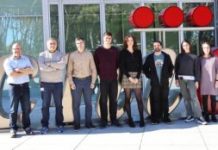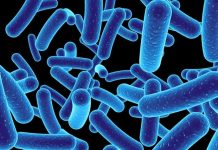Panelists:

Nathaniel Clark, PhD
Senior Scientist
Repligen
Panelist

Nathaniel Clark, PhD
Nathaniel Clark, PhD, is a senior scientist at Repligen. He has a doctorate in biochemistry and structural biology from UMass Amherst and studied RNA as a postdoctoral researcher at the University of Texas. At Repligen, he uses structural biology, protein engineering, and modeling to design novel affinity resins.

Kelsey Swingle, PhD
Assistant Professor
Department of Bioengineering
Rice University, Houston TX
Panelist

Kelsey Swingle, PhD
Kelsey Swingle, PhD, is an assistant professor in the Department of Bioengineering at Rice University. She completed her BSE in biomedical engineering at Case Western Reserve University and her PhD in bioengineering at the University of Pennsylvania. Swingle’s research focuses on engineering lipid-based nanoparticle technologies for drug delivery to reproductive tissues such as the placenta for the treatment of preeclampsia. At Rice University, Swingle is part of the Rice Biotech Launch Pad and the Rice360 Institute for Global Health Technologies, helping to facilitate the translation of therapeutic technologies for women’s health challenges from her lab to the clinic.
- Time:
As mRNA-based therapeutics move beyond early vaccine successes to encompass diverse modalities, the expectations for manufacturers to deliver products with consistent purity and quality are rising. To that end, traditional purification and quantitation processes will need to evolve to address current and new manufacturing challenges. Specifically, immunogenic double-stranded RNA (dsRNA) byproducts are a major impurity complicating the purification of RNA-based vaccines and therapeutics consisting of mRNA, circRNA, or saRNA. In addition, current UV methods of nucleic acid quantitation require extra sample handling in the form of dilutions, which can lead to inaccuracies in measuring mRNA concentration.
In this GEN webinar, Rice University assistant professor Kelsey Swingle, PhD, will provide a current overview of mRNA LNP therapeutics and Repligen senior scientist Nathaniel Clark, PhD, will discuss emerging purification and quantitation techniques that work for the new generation of mRNA therapeutics beyond COVID-19 vaccines. Key learnings from the webinar include:
- Size determination of quantification of dsRNA contaminants
- A dsRNA-specific affinity chromatography resin that removes dsRNA byproducts and eliminates the immune response in cell-based assays
- Validation of variable path length technology for accurate, reproducible mRNA quantitation
- Potential of in-line variable pathlength technology to improve mRNA manufacturing
A live Q&A session will follow the presentation, offering you a chance to pose questions to our expert panelists.
Produced with support from:
The post Strategies for dsRNA Removal and Accurate Quantitation in Emerging mRNA Modalities appeared first on GEN – Genetic Engineering and Biotechnology News.














